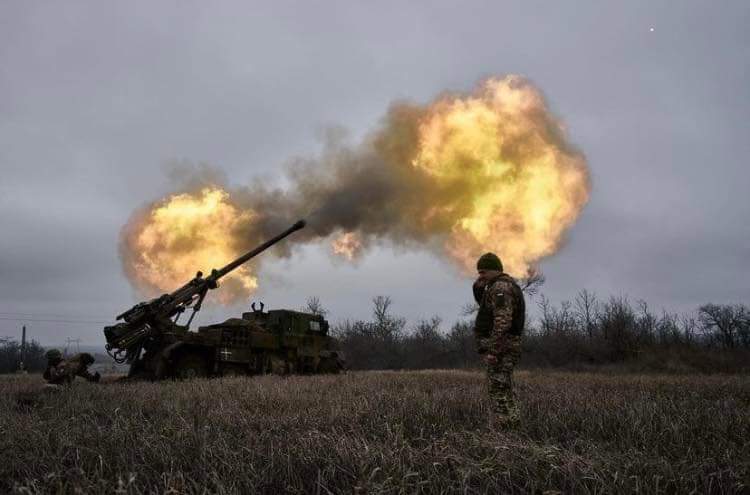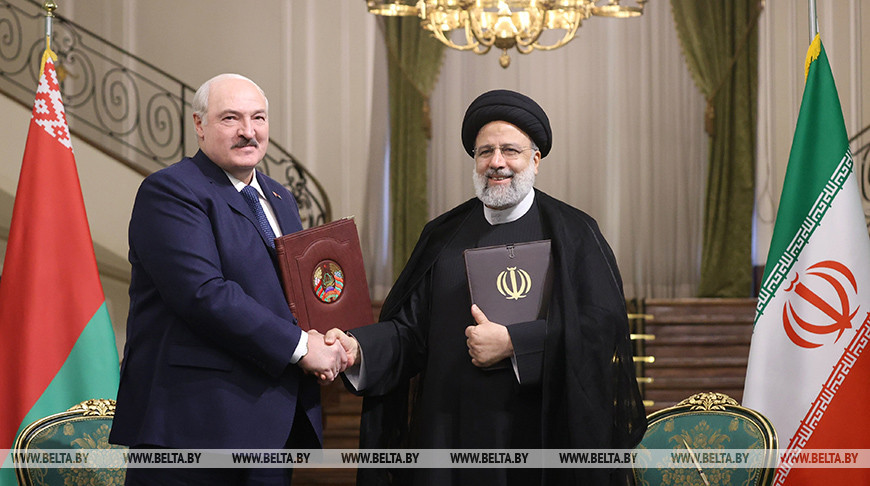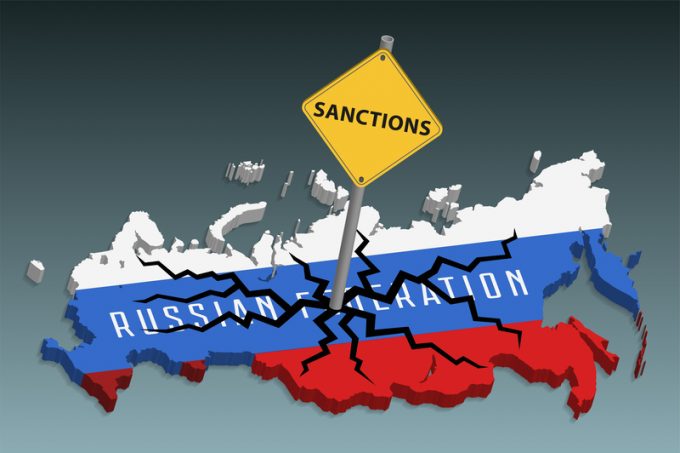The expanded meeting of the Russian Board of the Defence Ministry at the National Defence Control Centre on 21 December is a testimony to the West's ability to influence Russia's will to wage war and uphold its aggressive foreign policy.
Sanctions have undoubtedly impacted Russia’s ability to wage war. They have, however, had no impact whatsoever on Russia’s willingness to use military power to achieve its strategic aim and objectives.
Acknowledging that there is a huge gap between a statement of intent and the ability to implement the declared policy, the strategic messaging from the meeting is that Russia not only continues its confrontation with the West and its war in Ukraine but also intends to escalate.
It plans to increase its conventional forces by 30%, establish new military forces, and improve its nuclear deterrence capabilities. Russia also upholds its aim and objective for its war against Ukraine, including regime change under the pretext of "denazification", demilitarisation, the recognition of the illegally annexed territories, political control of Ukraine, and "security guarantees" from the West.
In my article “NATO’s defining moment is now or never” I outlined the Russian demands for so-called “security guarantees” and their potential far-reaching repercussions. ISW summarised these as:
“Russia’s demanded security guarantees entail partially dismantling NATO by returning NATO to its 1997 borders and grants Russia a veto on future NATO expansion by demanding NATO suspend its “Open Door” policy.”
Addressing the soldiers of the Russian Armed Forces, Putin stressed that they “are fighting like the heroes of the War of 1812, the First World War or the Great Patriotic War” against “the military potential and capabilities of almost all major NATO countries”.
“Today in Ukraine, Russia is fighting against the collective forces of the West. The United States and its allies have been sending weapons to Ukraine, training [Kyiv’s] military personnel, providing them with intelligence, sending advisers and mercenaries, and waging an information and sanctions war on Russia.”
The US, its NATO allies, and Ukraine want to defeat Russia on the battlefield to destroy it, Russia's Foreign Minister Sergei Lavrov said Monday while outlining the conditions for a peaceful resolution of the war -- fulfil the Russian demands. “Otherwise, the issue will be decided by the Russian army.”
The reiteration of President Putin’s goals from February 24 while at the same time framing the war as existential, implies that Russia accepts the present costs of the war and intends to push on to victory.
Nearly nine years after the war started – and nine years of sanctions – the West has failed to impose its will on Russia.
In fact, NATO and the EU have achieved the opposite. By restricting its response to non-military means only, the West has verified Russia’s perception of it as weak, lacking the will and ability to do what is needed to end the war. As a consequence, a low-intensity war has escalated into a full-scale war.
There are several reasons why sanctions have failed to force Russia to withdraw and act according to international law.
- Russia sees negotiations and sanctions as a sign of weakness. The fact that the West stands united behind the sanctions, does not signal strength. It only demonstrates collective weakness and lack of will to use military power to achieve their strategic aim and objectives.
- Sanctions are temporary. In contrast to the massive destruction in Ukraine, sanctions do not destroy anything. They only temporarily “cut the flow of money”. Russia knows from experience that the moment warfighting stops – irrespective of the outcome of the war – the West typically start lifting sanctions to facilitate a return to “normality”. Some Heads of State are bound to argue for a reset in the relationship – not because it is smart, but because the West always do – and Russia has every reason to expect this to be the outcome once it has achieved its desired end-state. Russia will live with the temporary pain to secure future long-term gains.
- Russia stands to gain enormously from a victory in Ukraine, while the pains from sanctions are temporary, Strategically, it will secure a Russian Great Power status. Having “defeated the USA, NATO and the EU in Ukraine”, it will take a position alongside that of the US and China.
What would happen if Russia wins?
A victory will ensure tremendous geostrategic gains.
It will bring Russian military power – including its ability to threaten European airspace - 1000 km closer to Berlin, Paris and London. A Russian victory will also ensure full control over the Sea of Azov and turn the Black Sea into a “Russian Lake”.
It will also allow Russia to refocus its efforts on another region of huge strategic importance with increasing geopolitical ambiguity, dynamic, and great power competition: The Arctic and the Northern Sea Route.
Since 2007, Russia has adopted a series of policies and strategies and amended its military and maritime doctrines to include the Arctic region, emphasizing the need to protect Russia’s Arctic territory and to project influence and power beyond its Arctic coastlines. The process of generating the military forces, capabilities and bases needed has been temporarily thwarted by its war efforts in Ukraine.
A victory will create the prerequisites for Great Power status.
Russia faces major demographic challenges that in the long run will affect both its economy and its ability to project military power globally. If Ukraine is successfully defeated and Belarus fully integrated (and swallowed up by Russia), the “Russian World” will grow by more than 800,000 square kilometres and up to 52 million people.
The new empire would consist of nearly 200 million people, supporting the economy and military power needed for global influence.
A strong economy is another precondition for its quest for global influence. 117 of the 120 most widely used minerals and metals are found in Ukraine. It has some of the world’s largest reserves of titanium and iron ore, fields of untapped lithium and massive deposits of coal. As of July, Russia occupied Ukrainian territories with approximately $12.4 trillion worth of energy deposits, metals and minerals. This summer, about 20% of all of Ukraine’s wealth in resources was in the hands of Russia, While it has since lost control of some, it still aims to control it all.
It already controls oil and gas resources in the Black Sea assessed to be equal to that of the North Sea basin in scope and scale. It would control the “breadbasket of Europe”, the richest agricultural area on the continent. In addition, it would gain access to Ukrainian innovation and technology across all sectors. It would not least, allow Russia to reconnect its defence industries to the Ukrainian “missing link”. Russia badly needs the Ukrainian defence industry to build the Armed Forces needed to become a Great Power.
By defeating Ukraine, it would create the economic, technological, demographic and, therefore, military preconditions to become and remain a Great Power.
We have already seen Russia weaponize energy by turning Europe’s reliance on oil and gas into a tool of blackmail. Control over Ukrainian minerals would give it yet another important leverage. In 2017, the US, the EU and the UK and US started a process to diversify their chain of supplies of critical raw materials. Europe turned to Ukraine.
“Ukraine has deposits of 117 of the 120 most widely used minerals and metals. At least 40 of them are needed for the green transition. It is a resource superpower.”
If Russia succeeds in Ukraine, it will gain yet another means to blackmail the EU. It will have a toolkit consisting of food, oil, gas, minerals and not, least, military power and nuclear arms.
The potential gains of waging war, therefore, by far outweigh the short-term, temporary costs of Western sanctions.
No level of sanctions will stop Russia from continuing its attempt to eradicate the Ukrainian nation and integrate the state, its territory and its population into Russia. If successful, Russia cannot be isolated or contained because of Western dependency on a State Sponsor of Terrorism: The Russian Federation.
This is why the West will continue to fail in its effort to end the war. Russia will continue to wage war until confronted by military means on equal footing.
It is willing to pay the cost in blood – both Russian and Ukrainian – to be able to reach Great Power status and the position to force Europe into submission by weaponizing food, oil, gas, and minerals, backed up by its threats of use of military power and nuclear arms.
Sanctions will only work when employed in combination with military power.
Related:
- EU criminalizes evasion of sanctions against Russia
- NATO’s defining moment is now or never
- Yermak-McFaul sanctions group makes Cold War 2.0 plan for Russia
- EU adopts 9th package of economic & individual sanctions against Russia: about 200 entities sanctioned
- What if Russia wins in Ukraine? Consequences of Hybrid War for Europe (Part 2)



